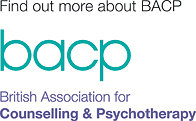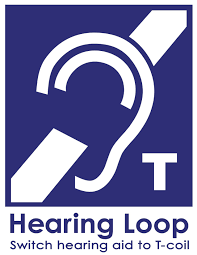To view archive blog click Archive.
Breathing Deeply
It used to bother me when someone would tell me to take a deep breathe when I was upset about something. It’s the equivalent of telling me to relax when I’m angry, or calm down. It always seemed less than helpful.
“Take a Deep breath. Calm down for a sec.”
It took me a while, but I’ve finally realised that instead of this being incredibly annoying, it’s actually really helpful and I’ve come around to the idea.
When I get stressed out or anxious, I take a deep breath and as I breathe out, mentally visualising blowing out all the anxiety.
Did you know that by taking a deep breath, it actually allows more carbon dioxide to enter your blood which quiets down the parts of your brain that handle your anxiety and fear responses? That’s why deep breathing is something that is talked about a lot when we discuss mindfulness and meditation. It also activates your Parasympathetic Nervous System which is the part that keeps us calm and restores our natural relaxed state. It is also called the "rest and digest" system, alternatively the Sympathetic nervous system is responsible for the "fight or flight" response.
Taking a deep breath has become a habit for me now. Just another tool added to my mental health and coping toolbox. Try it in your toolbox, it is easy and make sure it is a deep breath, from your belly!
Writing a Journal for self care
If you used to write a diary as a child and enjoyed it, doing it as an adult can have benefits for your mental health. As an adult you can also call it writing a journal as opposed to writing a diary, whatever you call it, it is a wonderful thing to write down our inner most musings and contemplate what they mean for us.
False Positivity and self love.
False positivity is something that we can find ourselves being told to do, or we can learn it from others, perhaps our parents. It is about ignoring how we feel and making ourselves appear happy and positive. So we don't feel bad or sad or depressed or upset. It has other terms, but it really means we ignore feelings that are hard to deal with so that we do not deal with them and we can suppress them in the hope they will disappear. They do not.
The more we feel our uncomfortable feelings the more we will learn about ourselves and our values. These are important for living the life we want to and being the person we want to be.
Self love and self care are useful and pave the way so we can feel how we actually feel and accept what it is, rather than pretend we feel something we do not.
Can we hold love or give it? I have never felt we can measure it by the standards set by the all consuming marketing and media we find most of these festivals immersed in today. Love is a human feeling, not an emotion as such, it becomes something we feel after a time and it includes other emotions. It can often be confused as passion, lust, greed or hurt. We proclaim it readily and use it to describe things we like so that we can show gratitude; sometimes we use emojis to let people know we are grateful; we use a lot of them if we feel insecure in the relationship we have with them.
If we do not receive any gifts or cards on Valentines Day are we less of a person, no, of course not. But we can feel that way and it can be a trigger for other feelings we have, like a past failed relationship or other betrayals.
We are becoming more accustomed to the phrase; self care and self love, and how important it is to do it, so that our mental health stay on track. How do we make time for this if we are constantly told that we must send love and flowers to our romantic partners?
These feelings are usually associated with low self esteem and a lack of self belief. When we feel this way our sorrow can look for extra validation, confirmation bias, to acknowledge the sadness we feel, however that is only half the story and we may be hiding just how sad we really feel. It can often feel easier to learn to hide feelings we do not like, or we feel others may not like or accept us for. We have all been told to cheer up! It is not very helpful when our sadness is telling us we are unhappy with a part of our lives, not necessarily that we are an unhappy person.
The best therapy for this is therapy, it can give you the space to explore why you feel this day is hard to deal with and what your past relationships may have left you feeling. If you are feeling an overwhelming sadness at the thought of Valentines day take some time to consider what your sadness is about, feeling it does not mean you will never be happy again.
Hangxiety
Does drinking affect our mental health and anxiety, or is it just light relief from a hard week and a good way to relax into the weekend and enjoy ourselves?
This is a good question and one I have pondered for years!
Like a lot of people, I enjoy a drink, but not the hangover! I have researched hangovers and what happens to the brain, very little research has gone into this over the years. I found, like many, that our brain shrinks so water was a great relief along with pain killers and stodgy food! But my hangovers continued with great pain and got worse as I get older. I also experienced anxiety along with my hangover and felt it was; just me!
This week I found an article in The Guardian about hangovers and their relation to anxiety, it states work done by Professor David Nutt at Imperial College, London (he was the same man who was fired in 2009 from the government as chief drugs adviser for saying that alcohol was more dangerous than LSD) that alcohol can make anxiety in people who suffer worse, especially with a hangover.
He introduces Gaba, which is gamma-aminobutyric acid, these are targeted by alcohol and send messages to the brain to inhibit the activity of the nerve cells, calming the brain. Ahhhhhh! So, the more you drink the more gaba you produce.
After a few more drinks you start to block glutamate, which is the main transmitter for excitement to the brain, so you feel more relaxed. Ahhhhhhhhhhh!
Great, no, because your brain notices this imbalance and wants to put it right, you are low in glutamate and high in gaba, this leads to anxiety.
Adding to the misery the anxiety usually starts while you are asleep it off.
Alcohol also cause a small rise in noradrenaline, which is the fight or flight hormone, so if you already suffer you could suffer more with a BIG BOOZY night out.
So, if you suffer with anxiety, it is helpful to know what can affect you and increase your anxiety.
Try to keep your alcohol intake at a reasonable level, be aware of what you are going to do, just a pub visit or a night club, and make arrangements so that you are safe. If you do over do it, be aware and self-care is the way to respond, which does not involve criticism and regret.
Take care all!
Tell it like it is!
Leading on from the discussion below, advice from Health care providers and Doctors is now saying that when we talk to children about their bodies and they ask, inevitably, what is this? We stop using term like winkie or fluffy and use the proper terms, which are penis and vagina.
So, ok, you now feel a bit silly talking like this to your child when maybe you do not talk like that to anyone else! Even your husband or wife! It doesn't trip out of your mouth easily and feels 'wrong'........ You feel uneasy and uncomfortable, why shouldn't the school deal with this?
Well, we don't want to continue the embarrassment that surrounds sex, so why not give it a go, your child will probably just say, oh, ok! You have done it, wasn't as hard as you first thought!
Here is the science bit! Children need clear guidance about sex and sexuality to protect them from harm. If we continue to use incorrect names we could, with out trying, create a confusing situation so others can step in with more knowledge and information. None of us wants that, so a little discomfort from us as parents now, is worth the anguish of them finding out interesting stuff from other adults. We get to keep control of what our children learn, in a safe environment. We can also talk about consent, when touching is ok and when it is not. All the interesting stuff that we all wanted to know about and may have found out about in a less caring way. (For me it was older kids at school, not teachers!)
Maybe we can try to change the way we feel about sexuality through safe talks with our children.
Sexuality
I will be telling my children one day about the realities of what it is to be human, how we have sex, who we choose to have sex with and how we identify this. I will also discuss menstruation, pregnancy and childbirth. I have one of each, so I will talk to them together because it is a universal subject rather than boy vs girl!
This type of discussion can fill parents with dread and want to then leave it to the school to do.
I think this is no longer an option, we have to make children the future we want to have which includes acceptance, diversity and compassion.
Most parents want to protect their children, especially from threat. To make our children more aware of how their own bodies are their own we need to first take away any confusion about them. That then leads onto a conversation about consent, the idea that children do not need to know this is outdated. If we arm them with information they will be able to deal with issues around consent, or by the teenage years they will know that if they go on a date it does not automatically mean sex, I know a generation that feels that it does.
Hiding hurt feelings is not so easy.
Sticks and stones may break my bones, but words will never hurt me.
I remember this phrase, I suppose it would be called a meme now and have a picture of stones and sticks!
The first time I heard it I was a child, in my head I had a picture of a stone hitting a bone and the pain of that! Ouch! The rest did not make much sense to me. I kept on hearing it, from my mother and the teachers at school, and other adults. They spoke it like it was a truth. Mostly it was said to me if I was upset by something someone had said to me, something that had caused me pain. Usually adults were not sure how to deal with my pain, so this phrase made my pain go away, of course it didn't, just for the adults and I went away!
Now I want to revisit it with an adult eye and ear! I am questioning the actual words as they are in the phrase, WORDS WILL NEVER HURT ME. This is wrong, of course they will hurt, they hurt emotionally and sometimes really deep. This phrase feels like a warning without an explanation, striking fear in a child or adult with confusion and pain.
Firstly, it makes a real statement that if you hit your bone with a stone it will hurt, however that is fantasy too, your skin is hit first so we have the first part of the set up! Our bones are not exposed, they are covered by muscle, veins, fat and skin, clothes too sometimes protective pads and guards or amour!
The second part suggests that words are not the same as a physical feeling, we know on the flip side that if someone says I LOVE YOU, we feel it physically in our body. We also feel it in our mind and we are in love! So, if someone says I HATE YOU, stands to reason that will hurt. A lot.
We do not have a covering for our emotions, like we do our bones, they can be exposed at all times. Our body can react before we are aware of the feeling we are experiencing, sometimes unexpectedly without any warning. Do we have cover our emotions the same way our bones are? Is hiding our feelings a way of covering our emotions from the exposure we feel? Is denying how we feel a way of pretending to ourselves that we do not feel hurt?
Can it work, does it work? If we show how vulnerable we are to hurt feelings does this make us a weak person and therefore a failure in life? Or does it make us a real person who is genuinely experiencing life.......?
You are too sensitive. Your have an open heart. You wear your heart on your sleeve. Harden up. Don't let them get the better of you. Do not show them how much they have hurt you, they will use it against you. Don't fuss. Your are so emotional. Are you at your time of the month. Is this how you want them to see you, at your worst.
I have heard many of these phrases in my life, none of them have helped me to process my pain and move through it, they mostly confused me and the pain lasted even longer. I ended up hurt and confused.
What do you do with hurt........?
What do we do with emotional pain? If I have physical pain I can take a pain killer, usually Paracetamol, to ease the discomfort. We can also cry, shout Aw! Get angry, be sad, in fact if we get physically hurt we go to our emotions to help us deal with it, as well as drugs!
But what do we do with an emotional pain? Do we recognise it in the same way we do our physical pain, or do we hide from it and pretend it does not hurt. Downplay it, minimize it, deny it, give it to someone else?
If all humans crave comfort from others is one of the easiest ways to deal with emotional pain, to pass it onto someone else?
Alternatively, can we go to the same human reactions we use for physical pain, cry, shout aw! Feel sad or angry? Do we then judge ourselves for being "weak" because we "let them get to us"? If we get hurt by a punch in the mouth and admit to ourselves that it hurts, are we weak, or being honest about how that felt? If someone ignores our text and we admit to ourselves that it hurts to be ignored, are we again weak or expressing an honest feeling? How do we get a remedy if someone has hurt us because they said something that made us feel bad?
We can ask them to say sorry. We need to give them the chance of doing this and also let them know that we got hurt in the first place.
There are three parts to saying sorry that make it work. The first is the word, saying you are sorry and knowing what you did was not right. The second is admitting your mistake and the hurt it caused, the third is asking how can I make it better and make it right? The important part is that we respect ourselves and each other by being aware and confident enough to know that we can cause pain to each other, by mistake, and once we admit it we can address what has happened. Anything else is just toxic!
Are there any other useful ways to deal with our emotional pain? Some people write a journal, others cry at a film (whilst really crying for themselves) some do exercise and some go directly to the cause of their pain and alert them to it!
I think this is a part of human life that is so easily hidden, but the pain is so very real.
https://greatergood.berkeley.edu/article/item/the_three_parts_of_an_effective_apology
Can we see our emotional hurt?
Sometimes we feel yuk! Our body may hurt, our muscles are tense, we have a headache and our teeth are sore! Our hands don't move with the usual swiftness that they have and as we walk we may plod along and even stumble. Our face may reflect a deep sadness or anguish only glimpsed as a flash as we move through our day waiting for it to end.
Sometimes we may have experienced our reality being denied to us by a significant other or a person in authority. It can be highly influential in how we interpret our experience. We may reach out to these people for support in moments of hurt or crisis and we can be met with a "it's not that bad" response.
How do you respond, or not, to this when you face a situation that is hard?
Sometimes people can turn the pain inwards to themselves rather than face the vulnerability of being rejected by others, just a small gesture can feel devastating. If we keep our pain in us no-one can hurt us further because we are holding on to it.
Whilst this works for a short time, over time the pain becomes heavy and bigger, by ignoring it we give it weight so it can feel like screaming.
What happens when we don't show our hurt....?
Sometimes people can try to find a way to hide the pain they feel, it can be because the pain they feel expressing their pain is worse than the original pain. Like, when a child is told not to cry so much, or just simply, Don't Cry! Mostly, children believe what they are told by adults, so they probably stop, but tears are a natural way to feel pain or sadness. Hence, the confusion and anguish start! This is something men may have had said to them, boys don't cry!
There is evidence that humans have to have an outlet for emotions, hurt is part of that. We can turn it inwards and start to hurt ourselves with our critical inner voice, or outwards in a rage against the community.
We can also use alcohol or drugs to take the edge off the pain, or to disguise it completely. Addictions can be a way to deal with the emotional pain people feel. These, of course, have their own effect on us, which often need to be dealt with before the hurt.
Chinese sign for listen.
Whilst studying my tutor brought this to my attention, he was also a fellow Carl Rogers fan! The picture is a Chinese character, the Chinese culture is ancient and with this sometimes comes wisdom, I feel this is a wonderful expression of how insightful language can be and how a word can have depth and meaning beyond first glance.
The character translates to our equivalent of to listen. It has five different strands to it, which add depth and intensify the meaning. This is the best way to explain Active Listening, which is what my counselling is about! They are as follows:
- ear - of course this is the actual apparatus we all use to hear with, even with an aid we still listen with it. It is on the whole left side of the character.
- king - obey and pay attention, as if the other person were a king! This is at the right top side, this side represents the individual, what you do and you!
- ten and eye - observe as if you had ten eyes! Heed the talker! Next down on the character.
- one - listen with your undivided attention, attend to the talker as if they were the only one in your world. Following onward on the character.
- heart - listen with your heart, hearken and be empathic. the final part of the symbol.
Don't sweat the small stuff!
You have probably heard this said as a bit of advice or seen a meme, or just thought it to yourself to help yourself if you are feeling anxious.
Well, it turns out that some of the small stuff can be the stuff that makes us feel terrible shame and failure. Which causes more anxiety and depression.
I shall explain, if you face a mammoth incident, it is right there, you have to face it, your community may be involved, your friends may rally round and your family may be there with support and sympathy. You may visit the Doctor to get assistance and you have a fairly good idea about the root cause of what is happening to you. There is no doubt, it has happened, it is there.
However, the small stuff can leave you confused, hurt, angry, can spiral out of control at an alarming rate. Nobody may be aware of the small stuff so you don't get support, if you want to go to the Doctor, what do you say is wrong.....
You can feel very confused and to top it off, in your head you hear a positive affirmation of "Don't sweat the small stuff!" And it turns out to be unhelpful to how you are feeling. A small incident is not right there, it is nowhere and yet everywhere.
So, feel the way you feel about the small stuff, hurt, angry, sad, distressed, frightened, whatever you feel. It is ok to feel it. It is real and it is necessary to feel it.






